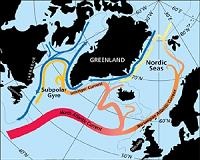| . |  |
. |
Washington (AFP) Nov 7, 2010 The craze for sushi has fueled a black market in tuna worth billions of dollars, as governments collaborate with the industry despite fears for the species' survival, an investigation found. A seven-month probe by the International Consortium of Investigative Journalists found that fishermen have willfully violated official quotas in order to supply the lucrative tuna market, which is dominated by Japan. The investigation covered 10 nations but found particular violations in France, where it said the Ministry of Agriculture and Fisheries has joined forces with the tuna industry to doctor catch numbers. "Everyone cheated," said Roger Del Ponte, one of the six French fishing captains facing criminal charges. "It's like driving down the road. If I know there are no police, I'm going to speed," he said in the report. The journalists said the black market in Eastern Atlantic bluefin tuna was worth at least four billion dollars between 1998 and 2007. The calculation came from comparing the estimated total catch of tuna with official quotas and then using rates at Tokyo's Tsukiji fish market. Global fears over tuna stocks emerged in 2007 when France declared it had caught nearly 10,000 tons, almost double its quota allowed under the International Commission for the Conservation of the Atlantic Tunas (ICCAT), a regulatory body. "We found that the system failed at every point. It failed in that vessels were overfishing and that officials were turning a blind eye to that overfishing for years," said Kate Willson, a reporter on the investigation. Facing an outcry, ICCAT came up with a new system in 2008 to keep track of the trade. But the study said the database was ineffectual and the tuna industry was heading to areas with even less oversight such as North Africa. Willson said the French ministry declined repeated requests for comment. "There is no way to know if the situation is getting better. We're supposed to trust them that they are getting better," she said. ICCAT found that spawning stock of Eastern Atlantic bluefin tuna has tumbled by nearly 75 percent in the past four decades, with more than half of the loss between 1997 and 2007. Jean-Marc Fromentin, a marine biologist on ICCAT's scientific body, said that experts had recommended a cut in fishing quotas as long ago as the late 1990s. "If the countries had listened, then there would have been no risk of collapse," he said in the report. "But because they didn't pay attention, and they didn't control (catch limits), then after a few years the situation became really critical and we began to speak about the risk of collapse," he said. ICCAT meets in Paris from November 17 to 27, ahead of which European Union fisheries commissioner Maria Damanaki has called for a substantial reduction in the bloc's tuna catch quota of 13,500 tons. France has opposed the quota, arguing that tuna stocks will be sustainable by 2022. Diplomats say that France is backed by other Mediterranean countries including Greece, Italy and Spain, while Britain is the only country clearly to back Damanaki's position. A March meeting in Qatar soundly defeated a proposal backed by the United States and European Union to ban the international trade of Atlantic bluefin tuna after an aggressive lobbying effort by Japan. The study said that Japan has driven the demand for the Atlantic bluefin, with the industry taking off in the 1980s when the Japanese developed a passion for "toro," the fatty belly of tuna. But after years of financial backing for the industry, Japan has tried to distance itself from perceived excesses, the study said. Last year it temporarily halted imports from Tunisia due to a lack of required documentation on the catch. The study traced industry excesses to the mid-1990s, when Japanese companies helped set up tuna "ranches" in which fishermen would take their catches to underwater cages to fatten them up. With little oversight, the industry began to "launder" tuna by misreporting weight and country of origin, the study said. "For the fish that are over quota, you have to find a solution," a former manager at a Spanish tuna ranch said in the report. "You either trade it illegally or keep it until the next season."
Share This Article With Planet Earth
Related Links Water News - Science, Technology and Politics
 Climate Change 20,000 Years Ago Reversed Circulation Of Atlantic
Climate Change 20,000 Years Ago Reversed Circulation Of AtlanticBarcelona, Spain (SPX) Nov 05, 2010 The Atlantic Ocean circulation (termed meridional overturning circulation, MOC) is an important component of the climate system. Warm currents, such as the Gulf Stream, transport energy from the tropics to the subpolar North Atlantic and influence regional weather and climate patterns. Once they arrive in the North the currents cool, their waters sink and with them they transfer carbon fro ... read more |
|
| The content herein, unless otherwise known to be public domain, are Copyright 1995-2010 - SpaceDaily. AFP and UPI Wire Stories are copyright Agence France-Presse and United Press International. ESA Portal Reports are copyright European Space Agency. All NASA sourced material is public domain. Additional copyrights may apply in whole or part to other bona fide parties. Advertising does not imply endorsement,agreement or approval of any opinions, statements or information provided by SpaceDaily on any Web page published or hosted by SpaceDaily. Privacy Statement |